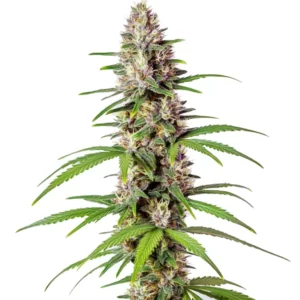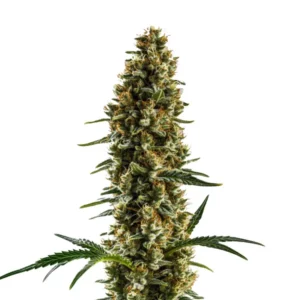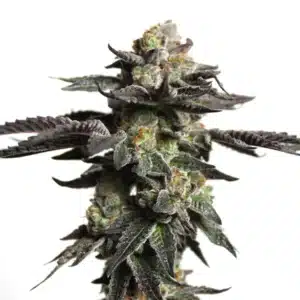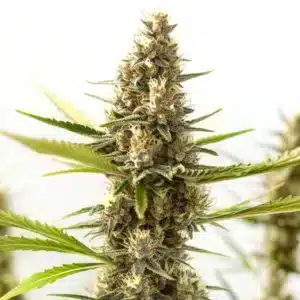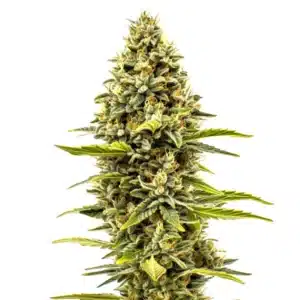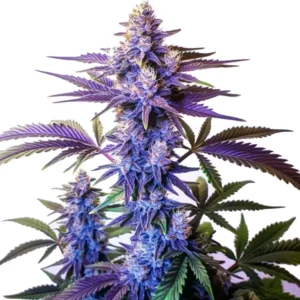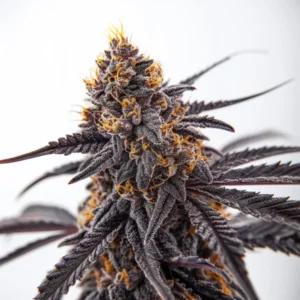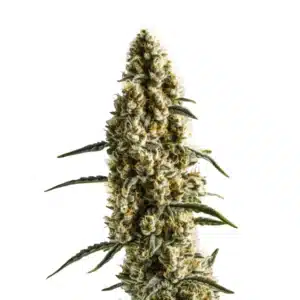
How Cannabis Oil Helps Lung Cancer Patients: Pain Relief & Support
Lung Cancer and Cannabis Oil
What Is Lung Cancer and How Does It Progress?
Lung cancer develops when cells in the lungs grow uncontrollably, forming tumors that interfere with normal lung function. These tumors can be benign or malignant, with malignant tumors having the potential to spread to other parts of the body. Lung cancer is classified into two main types: non-small cell lung cancer (NSCLC) and small cell lung cancer (SCLC), with NSCLC being the more common form.
Symptoms of lung cancer include a persistent cough, chest pain, shortness of breath, coughing up blood, and unexplained weight loss. Smoking is the leading cause of lung cancer, but exposure to harmful chemicals, air pollution, and genetic factors can also contribute to its development.
Recommended Strains
Sugar Haze Fast Version
|
|
THC | 23% - 25% (High) |
|
|
Type | Feminized |
|
|
Yield | High |
|
|
Phenotype | 40% Indica / 60% Sativa |
Sugar Haze Regular
|
|
THC | 21% - 31% (High) |
|
|
Type | Regular |
|
|
Yield | Medium |
|
|
Phenotype | 30% Indica / 70% Sativa |
The Endocannabinoid System’s Role in Cancer Regulation
The endocannabinoid system (ECS) plays a crucial role in maintaining homeostasis within the body, regulating functions like mood, pain perception, appetite, and immune response. The ECS consists of cannabinoid receptors (CB1 and CB2), endocannabinoids produced by the body, and enzymes that help regulate their activity.
Research suggests that the ECS may also play a role in cancer regulation. Some studies indicate that stimulating CB1 and CB2 receptors with cannabinoids from cannabis oil may influence cancer cell behavior, potentially reducing tumor growth and inflammation. This has led to growing interest in the potential benefits of cannabis oil for lung cancer treatment.
How Cannabis Oil Interacts with Lung Cancer Cells
Cannabis oil contains active compounds such as cannabidiol (CBD) and tetrahydrocannabinol (THC), which interact with the ECS. Studies have shown that these cannabinoids may influence lung cancer cells in several ways:
- Inhibiting Tumor Growth: Some research suggests that cannabinoids can slow the proliferation of cancer cells by interfering with key cellular signaling pathways.
- Inducing Apoptosis: Cannabinoids may trigger apoptosis, a process of programmed cell death that prevents cancer cells from multiplying.
- Preventing Metastasis: Early findings indicate that cannabinoids might reduce the ability of lung cancer cells to spread to other areas of the body.
- Reducing Angiogenesis: Tumors need new blood vessels to grow. Some studies suggest that cannabinoids may help prevent this process, limiting the tumor’s ability to expand.
While these findings are promising, clinical research is still in its early stages, and more studies are needed to confirm these effects in human patients.
Promos & Deals
Potential Benefits of Cannabis Oil for Lung Cancer Patients
Can Cannabis Oil Help Slow Tumor Growth?
Some preclinical studies suggest that cannabinoids like CBD and THC have anti-tumor properties that may slow lung cancer progression. A case reported in BMJ Case Reports described a lung cancer patient whose tumor shrank after using CBD oil without undergoing conventional treatment. While this case is intriguing, it does not serve as definitive proof of cannabis oil’s effectiveness. Clinical trials are needed to determine whether these effects can be replicated on a larger scale.
Managing Pain and Inflammation with Cannabis Oil
Lung cancer patients often experience significant pain and inflammation due to tumor growth and treatments like surgery, chemotherapy, and radiation. Cannabis oil is well-known for its analgesic and anti-inflammatory properties. By interacting with CB1 receptors in the nervous system, THC can help reduce pain perception, while CBD may reduce inflammation.
Many patients report improved comfort and better management of cancer-related pain when using cannabis oil alongside conventional treatments. This makes it a potential alternative to opioids, which carry a high risk of addiction and adverse effects.

CBD and THC in Lung Cancer Treatment
Cannabis oil contains various cannabinoids, with CBD and THC being the most studied for their effects on cancer patients:
- CBD: Known for its non-psychoactive properties, CBD may help reduce anxiety, pain, and inflammation without causing intoxication.
- THC: The psychoactive compound in cannabis, THC, has shown potential in managing pain, stimulating appetite, and reducing nausea. However, its psychoactive effects should be considered when determining dosage.
Some studies suggest that a combination of CBD and THC may provide the best therapeutic effects, as they may work together in what is known as the “entourage effect.” More research is needed to determine the optimal ratio for lung cancer treatment.
Can Cannabis Oil Reduce Chemotherapy and Radiation Side Effects?
Chemotherapy and radiation therapy can cause severe side effects, including nausea, vomiting, appetite loss, and fatigue. Cannabis oil has been widely recognized for its ability to alleviate these symptoms.
The FDA has approved synthetic cannabinoids such as dronabinol and nabilone to treat chemotherapy-induced nausea and vomiting, suggesting that natural cannabis-derived compounds may provide similar relief. Many lung cancer patients report that cannabis oil helps them tolerate cancer treatments more effectively, improving their overall well-being.
Risks and Considerations of Using Cannabis Oil for Lung Cancer
Possible Side Effects and How to Minimize Them
While cannabis oil has potential benefits, it may also cause side effects, including:
- Drowsiness
- Dizziness
- Dry mouth
- Changes in appetite
- Increased heart rate (with high THC doses)
To minimize side effects, patients should start with a low dose and gradually increase it under medical supervision. Choosing CBD-dominant products may help reduce the risk of psychoactive effects associated with THC.
Interactions Between Cannabis Oil and Lung Cancer Medications
Cannabis oil can interact with medications used in lung cancer treatment. Both THC and CBD affect liver enzymes responsible for metabolizing drugs, which may alter their effectiveness. Patients should consult their oncologist before incorporating cannabis oil into their treatment regimen to avoid unwanted interactions.
Finding the Right Dosage for Lung Cancer Symptom Management
Determining the right cannabis oil dosage can be challenging, as it varies based on factors such as weight, metabolism, and severity of symptoms. Patients should begin with a low dose and adjust gradually based on their response. Medical guidance is crucial to ensure safe and effective use.
Best Cannabis Oil Products for Lung Cancer Treatment
Full-Spectrum vs. Broad-Spectrum vs. CBD-Isolate Oils
- Full-Spectrum: Contains all cannabinoids, including THC, providing the entourage effect for enhanced therapeutic benefits.
- Broad-Spectrum: Includes multiple cannabinoids but no THC, ideal for those avoiding psychoactive effects.
- CBD-Isolate: Pure CBD without other cannabinoids, suitable for individuals sensitive to THC.
How to Choose a High-Quality Cannabis Oil for Lung Cancer
Patients should look for:
- Organically sourced cannabis to avoid harmful pesticides.
- Third-party lab testing to verify purity and potency.
- CO2 extraction methods for the safest and cleanest product.
- Transparent labeling with clear cannabinoid content information.
Recommended Consumption Methods for Lung Cancer Patients
- Sublingual Tinctures: Fast-acting and easy to dose.
- Capsules: Provide consistent dosing with longer-lasting effects.
- Edibles: Offer prolonged symptom relief but take longer to act.
- Inhalation (Vaping): Provides immediate effects but may not be suitable for all lung cancer patients due to respiratory concerns.

FAQs About Cannabis Oil for Lung Cancer Treatment
Can cannabis oil cure lung cancer?
Cannabis oil is not a cure for lung cancer. While research suggests it may help manage symptoms and support conventional treatments, patients should follow their oncologist’s recommendations for treatment.
How long does it take for cannabis oil to show effects on lung cancer symptoms?
The effects of cannabis oil vary depending on dosage, method of consumption, and individual response. Some patients experience relief from symptoms within hours, while potential long-term benefits require consistent use over weeks or months.
Is cannabis oil safe for long-term use in lung cancer patients?
CBD is generally considered safe for long-term use, while prolonged THC exposure should be monitored. Regular consultations with healthcare providers help ensure safe and effective treatment planning.


